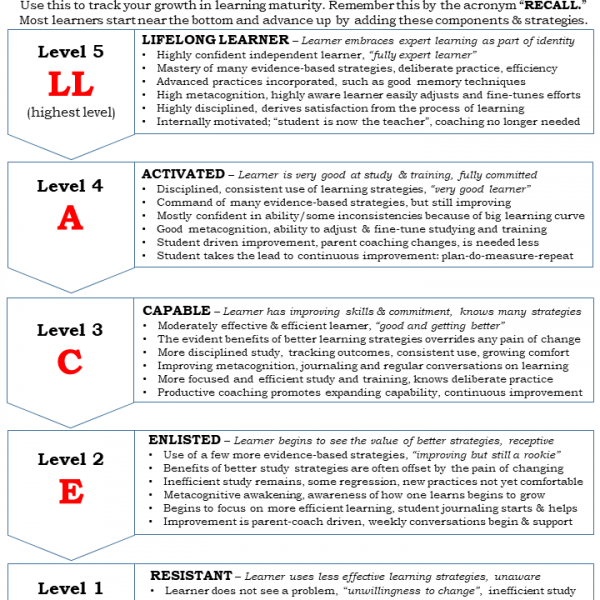
How to Create a Summer Learning Challenge!

Reading time: 5 minutes
I think summer provides an opportunity to turn your homeschooling upside down – why not center learning on an out-of-the-box learning challenge that has the power to make this summer uniquely different? Challenge your child to go much deeper into one subject or skill for a month or two where the child can work at her own pace to get much better and more knowledgeable and skillful. Focusing on just one expertise instead of spreading time among multiple subjects can be a welcome change to homeschooling and create a learning experience that many kids will welcome.
Why? Because kids can work independently on something they really want to learn.

Once you select a topic and set a goal, tailor the weekly activities so each child has their own personal and unique summer challenge. Layout a multi-week series of learning activities in pursuit of a stretch goal and invent a fun reward at the end for achieving it. All you have to do is 1) decide on a topic or skill, 2) set a plan with weekly milestones, 3) design some weekly and end rewards and incentives, then 4) lay down your challenge to get much better and more skillful at something they want to do – and turn them loose.
Start by creating a wish list of things your child wants to get better at. Don’t just pick the first thing, make this a conversation and a planning activity by sitting down with your child and writing down a list of personal goals she wants to achieve. List hobbies, Spanish as a second language, cooking, music, chess – any subject where your child has a passion. Start with a rich list of possible goals.
What turns an independent learning project into a summer challenge? The challenge should have these components:
- You are attempting to find a breakthrough in a skill or body of knowledge.
- You have weekly progress goals that have to be met, and you celebrate reaching each milestone. (important – it has to be fun)
- You track the child’s progress graphically so it has the feel of a contest.
- There is a specific end goal your child is trying to meet or exceed. The challenge is to work against their plan, not other kids.
- You are creative in coming up with an interesting and fun reward at the end.
- You celebrate success and hard work! It’s more than a goal, it’s an achievement.
This works much better when your child is competing against the plan they have set, and not a sibling or another child. It’s their challenge to meet or beat their goal. Your role is to provide some structure, so progress stays on track, to be the encouraging coaching to maintain motivation, and you ensure by design that there are lots of both intrinsic and extrinsic rewards.
In addition to helping your child find a meaningful breakthrough, the added benefit of the challenge is the opportunity to practice project management skills, which are useful life and career skills. You help your kid learn how to plan and track progress. The sophistication of the project skills, of course, depends on the child. For younger kids, simply map out weekly activities on a whiteboard, while teens can be tasked to create and use a spreadsheet or learn to use simple project management software. But remember, an important part of the learning experience is to let your child participate in setting the challenge goal and the weekly milestones they intend to accomplish.
In one sense, one can consider a challenge as an updated version of the old-fashioned summer book reading challenges that I, and perhaps you had as a child. I remember my older sister and I had fun pushing one another to read the most books. It was back and forth each week and I never felt this was work because I got to select the books that I wanted to read. At age ten, my plan was simple, one book a week. Toward the end of summer, we were amazed at how many books we read.
And I also remember we got weekly rewards for good progress in plenty of ice cream and treats. Simple stuff – but it worked. And in one way this may have started me on my business career as these summers were my first exposure to project planning methods and experiencing the joy of getting much more accomplished in a short amount of time.
How can you set up your learning challenges?
Steps for Really Great Learning Challenges
Here are some practical steps and ideas to create your challenge.
- First, identify a short but rich list of potential breakthroughs your child wishes to achieve. Make each of them specific wherever possible. For example, 500 or even 1,000 new words of Spanish? Get to the next level in a sport – what does that look like? Learn how to cook 10 complete meals. Design and build something. Learn to run a ten-minute mile. Learn about and practice better reading skills. Make a list of impressive breakthroughs, don’t pick minor improvements, go for the gold. Ask questions, encourage thinking about goals that stretch and grow the person, but not too much that your child won’t experience that big win.
- Next, select the right challenge. The best way is to build a list of bullet points that provide the selection criteria and use these to shorten the list. Remember, the planning you are doing is itself part of the learning experience. Setting attainable goals is an important life skill.
- Now put some detail on that challenge. Have these conversations – What will you need to do to hit your goal? What will you read, what videos will you watch, how will you practice the enabling skills to get where you want to be? Is there a music teacher, coach, learning partner, or some classes you will need to attend? Where do all the new ideas and practice doing them come in? Have your child do some research and lay this all out, discuss it, then put it into a week-by-week plan. Break the challenge into bite-sized pieces.
- You, the parent, need to be the source of additional motivation. Now you are getting into the good stuff. Remember all of this is part of the learning experience. Four to six weeks, or however long your plan, is going to require effort and dedication. Share your vision of an exciting end of summer and get your kids to picture what it will feel like when they reach their goal. This is an opportunity to experience personal satisfaction from the focused effort, but that’s ok because you can load this up with many opportunities for recognition and praise.
- Discuss the need for the learner to track her progress and select a way to record and report weekly milestones. Don’t take this on as a parent, you want this skill to be learned. How will you do this? These activities allow your child to experience the satisfaction of seeing ongoing progress.
- Weekly reporting helps you maintain momentum and recognize accomplishment. Make it an interactive experience, where kids provide fun presentations to describe what they have accomplished each week. I don’t like filling out checklists because this is not part of a fun challenge. Presentations with lots of praise are better. Describe the major things you learned this week. Show us the ten Spanish verbs you learned this week. Remember, learning how to set and meet milestones is also a valuable life experience.
- Visually track progress by using a whiteboard or flipchart to chart each week. This provides the child an opportunity to graphically draw and publicly display progress for everyone to see. Use colors to report if they are ahead of plan, on the plan, or need to catch up on something.
- Make the actions clear for each week. If it’s a book challenge, how many chapters will they read? If it’s a language challenge – how many words will they learn? It’s important to have a clear list of activities to accomplish each week because this provides motivation. You can always revise these as you go.
- Designate an accountability partner where each child has someone to encourage them to do the work. This can be siblings or friends, but it needs to be someone who will support the challenge and serve as
- Don’t let the plan become the ceiling to effort. Encourage the life skill of working ahead of schedule. Kids need to discover how satisfying this can be. But don’t push too hard.
- Plan for setbacks. You know these may happen, so diplomatically suggest a little slack in the schedule plan to account for summer interruptions. Consider building in a mid-challenge break week to take time off or recover or make the last week an “empty schedule” week with no planned activities that allow time to polish final efforts. You want this challenge to result in a real win for your kids.
Summary
In summary, take what normally might be an independent study project and turn it into a challenge. Set a goal to improve and find a breakthrough at something your child wants to get better at. Again, this can be almost anything – reading, cooking, a second language, music, art, hobbies, just ab0ut any topic or interest that requires time and focus to get better at it. A particularly good choice is selecting a topic or at least incorporating something that improves life skills.
Use your creativity and invent a challenge with lots of independent learning to be accomplished by a specific future date. Make the goal specific and, if possible, measurable. Independent study is most effective when you incorporate project management skills appropriate to grade level. A good plan, with milestones, allows the child to make progress independently.
Last, provide support to help your child focus on healthy thinking practices and sound learning skills because these will help them reach this next level of skill or knowledge.






